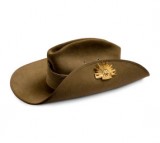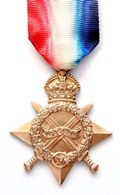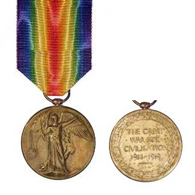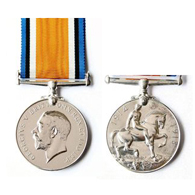JACKSON Dudley
-

- 2493
- Private
- Temporary L/Corporal
- 20 Battalion
- Cooroy
- Yes
- 1895
- Glebe sydney
- 15 August 1915
- HMAT A70 Ballarat
- 30 September 1915
- Sydney
-
Dudley Jackson was born at Glebe, Sydney, in 1895 to Joseph Jackson and Annie (Price). On 15 August 1915 at Warwick Farm, Dudley aged 19 years and 10 months, enlisted in the 5th Reinforcements, 20th Battalion, B Company. The 20th Australian Infantry Battalion was raised at Liverpool New South Wales in March 1915 as part of the 5th Brigade. Dudley was described as 5 feet 7 inches in height, 156 pounds weight with dark complexion, brown eyes, dark hair and of the Church of England faith. He named his father, Joseph Jackson of Neutral Bay, as next of kin and his occupation as Motor Driver.
On 30 September 1915, Dudley embarked on HMAT ‘Ballarat’ A 70 from Sydney for Egypt. At Abbassia, he contracted mumps and was admitted to 4 Auxiliary Hospital on 11 December until 4 January 1916. He was taken on strength at Tel El Kebir on 19 January. After further training in Egypt Dudley embarked with the unit an board HMT ‘Haverford’ from Alexandria for Marseilles on 18 March 1916.
The 20th Battalion entered the trenches on the Western Front for the first time in April 1916 and took part in its first major offensive near Pozieres in July and August. On 9 August Dudley Jackson was promoted to Temporary Lance Corporal but on 16 October, he reverted to the Ranks at his own request. The 20th Battalion provided reinforcements for an attack near Flers between 14 and 16 November 1916. It was also one of the four battalions to defeat a German force almost five times as strong at Lagnicourt In April 1917. During the remainder of 1917, three major battles were fought: second Bullecourt, 3-4 May; Menin Road, 20-22 September and Poelcapplle in Belgium, 9-10 October.
On 24 May 1917, Dudley presented to the 7th Australian Field Ambulance with defective vision to be admitted to the Corps Collecting Station. He re-joined the Battalion on 3 June and again required medical attention from 1-7 October. He was granted leave from 21 January until 8 February 1918. The 20th Battalion encountered very severe fighting during the German Spring Offensive in the attack of Hangard Wood on 7 April 1918. The Germans were being forced closer to defeat at Amiens on 8 August and Mont St Quentin on 31 August. Dudley Jackson was wounded in action at the battle of Mont St Quentin, sustaining a gun shot wound to the left leg and cheek on 31 August 1918.
From the 9th Australian Field Ambulance, then the Casualty Clearing Station, Dudley was admitted to 9 General Hospital, Rouen on 1 September. Four days later, he was invalided to England to be admitted to Royal Victoria Hospital, Netley on 5 September 1918. After three days, he transferred to the Convalescence Department at Furlo. Dudley was again hospitalised in Australian General Hospital, London with Influenza from 18 September to 29 October followed by convalescence at Harefield and then to No. 1 Convalescence Department at Sutton Veny on 23 November 1918. On 9 December 1918, he embarked from London on HS ‘’Argylshire’’ to disembark in Australia on 1 February 1919. He was discharged on 30 August 1919.
Dudley Jackson was awarded the Military for bravery in the field. The citation read: ''During operations near Mont St Quentin, North East of Peronne, on 31st August 1918, this man was conspicuous from the moment the attack commenced until the final objective was realised. His work with the Lewis gun was both effective and fast. He was the first machine gunner to reach the objective and on his own initiative mounted his gun on the left flank swinging it into action with telling effect and at the same time protecting the flank which at that time was very much opposed to the unit attacking on the left being held up.''
A notice in the London Gazette of 17 June read: ''AWARDED THE MILITARY MEDAL'' ''His Majesty the King has been graciously pleased to approve of the award of the Military Medal for bravery in the field to No. 2493 Private D Jackson.''
The notice was also published in the Commonwealth of Australia Gazette No. 115 on 10 October 1919. Dudley Jackson was also awarded the 1914 Star, Victory Medal and British War Medal.It appeared that Dudley was at Tweed Heads in January 1920 when the Secretary of the local Repatriation Committee wrote to Base Records on his behalf to enquire when Dudley would be presented with his Military Medal. By 1925 he had settled at Mary River Road, Cooroy as a farmer. Dudley had taken up land at Bagtown, on Newspaper Hill Road, on which he planted bananas, as others had done. The Government had made small blocks of land available to settlers who erected dwellings from round bush timber with walls of hessian – hence the name Bagtown. Albert (Tab) Greber remembered that it covered a large area. As the crops developed, Dudley realized there was need for transport to get the fruit to the railway. He sold his lot and bought an old truck. He later bought a cream run from Mr Bell. Long term residents fondly remember ’Dud’ Jackson and his cream truck on which they had travelled to school and to other social events.
In 1939, Dudley Jackson married Essie Greber, the daughter of James Greber and Lily (Fritz). There was one son of the marriage. In the 1960s the couple retired to Nambour while Mr Evans took over the cream run. Dudley passed away in 1970 aged 74.
- Pozieres
- Flers; Lagnicourt; Second Bullecourt; Memin Road; Poelcappelle; German Spring Offensive, Hangard Wood; Amiens; Mont St Quentin
-

-

-

-

- Returned to Australia
- 1 February 1919
- 1970
- 75
-
NAA Dossier; AWM Embarkation Roll; Unit History; BDMs; Commonwealth Electoral Roll; Echoes of the Past Cooroy & District Families (Ed.) Betty Sutton. AWM hold Jackson's war diaries Ref 3DRL/3846 Description Collection relating to the First World War service of 2493 Private Dudley Jackson MM, 20 Battalion, Australia, Egypt, Western Front, 1915-1919. Collection consists of two notebooks containing Jackson's handwritten memoir of his military service; two typescript volumes entitled 'War Diary of D. Jackson' (each liberally illustrated with postcards and photographs); several small notes containing addenda to the typescript diary; a typescript letter, dated 13 February 1966, from William Henry Guard, a former member of 20 Battalion to Dudley Jackson; three coloured snapshots of headstones in the Brewery Orchard Cemetery, Bois-Grenier, France; a newspaper clipping featuring an informal review of Dudley Jackson's war diary.
- Cheryl and Betty
